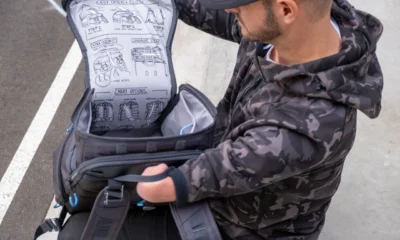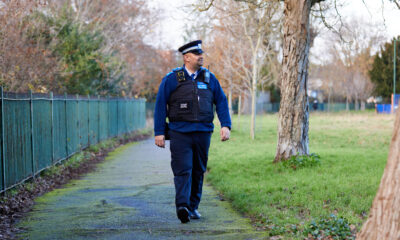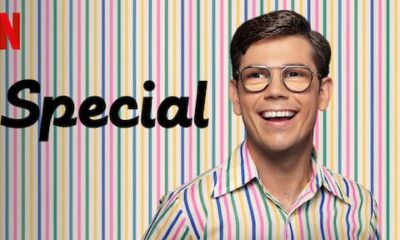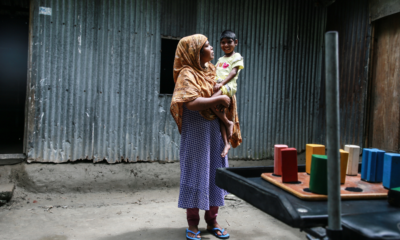Thought and Opinion
Tackling Common Disability Challenges: 5 Ways to Foster a More Inclusive Society
Confronting the trials of living with a disability can be intricate, but by employing the right methods, we can forge an environment that’s both inclusive and supportive for all. In this article, we’ll delve into five prevalent disability concerns and present viable strategies to tackle them.
1. Overcoming Inaccessible Infrastructure:
Numerous individuals with disabilities encounter hindrances while maneuvering public areas and structures due to the absence of accommodating features.
Solution: Partner with architects and urban planners to guarantee that public spaces and establishments are fashioned with features such as ramps, elevators, spacious walkways, and other provisions that cater to various mobility requirements.
2. Expanding Employment Horizons:
People with disabilities frequently come across impediments while pursuing job opportunities, leading to their underrepresentation in the workforce.
Solution: Motivate employers to enforce policies of diversity and inclusivity by extending sensible adaptations like flexible work schedules, assistive technologies, and comprehensive training schemes.
3. Addressing Social Isolation:
Social isolation is a common plight for those with disabilities, as they often confront barriers when engaging in social endeavors.
Solution: Establish communal initiatives and recreational events that encompass inclusivity and accessibility, nurturing a sense of belonging and camaraderie for individuals of diverse capabilities.
4. Overcoming Communication Barriers:
Individuals contending with communication-linked disabilities may encounter difficulties expressing themselves and interacting with others.
Solution: Champion the adoption of augmentative and alternative communication (AAC) techniques, including sign language, text-to-speech software, and communication aids, to facilitate effective exchange.
5. Dispelling Stigma and Misconceptions
Prejudiced stereotypes and misinterpretations surrounding disabilities endure, impeding social integration and comprehension.
Solution: Initiate campaigns aimed at enlightening the public about various disabilities, with a focus on debunking misconceptions, nurturing empathy, and showcasing the remarkable aptitudes of disabled individuals.
By addressing these pivotal concerns, we can steer society toward a realm where every individual, irrespective of their capabilities, is granted equal prospects and resource accessibility. It’s pivotal to keep in mind that inclusivity’s advantages are universal, enriching our communities. Through concerted endeavors and collaboration, a more empathetic and accessible world can be shaped for all.
Featured
Seven Supermarket Chains Under Fire for Introducing Inaccessible Fridges

In a push for innovation and energy efficiency, seven major supermarket chains including, Aldi, Asda, Lidl, Morrisons, Sainsbury’s and Tesco have introduced new fridges across their stores. While the rollout is being celebrated for its potential to reduce environmental impact, the move has sparked a backlash from the disabled community, who argue the design disregards accessibility needs.
Many disabled shoppers report that these designs create significant barriers for people with mobility impairments, visual impairments, and other disabilities.
Key Accessibility Concerns
- Heavy or Complex Doors
Some of the fridges feature heavy sliding doors or mechanisms requiring significant dexterity or strength. For those with arthritis, muscular disorders, or limited upper body mobility, opening the doors becomes an impossible task. - Crowded Layouts
Reports from disabled shoppers also highlight how narrow aisles and tightly packed fridge layouts exacerbate the problem, making it difficult for those using mobility aids to maneuver around these installations.
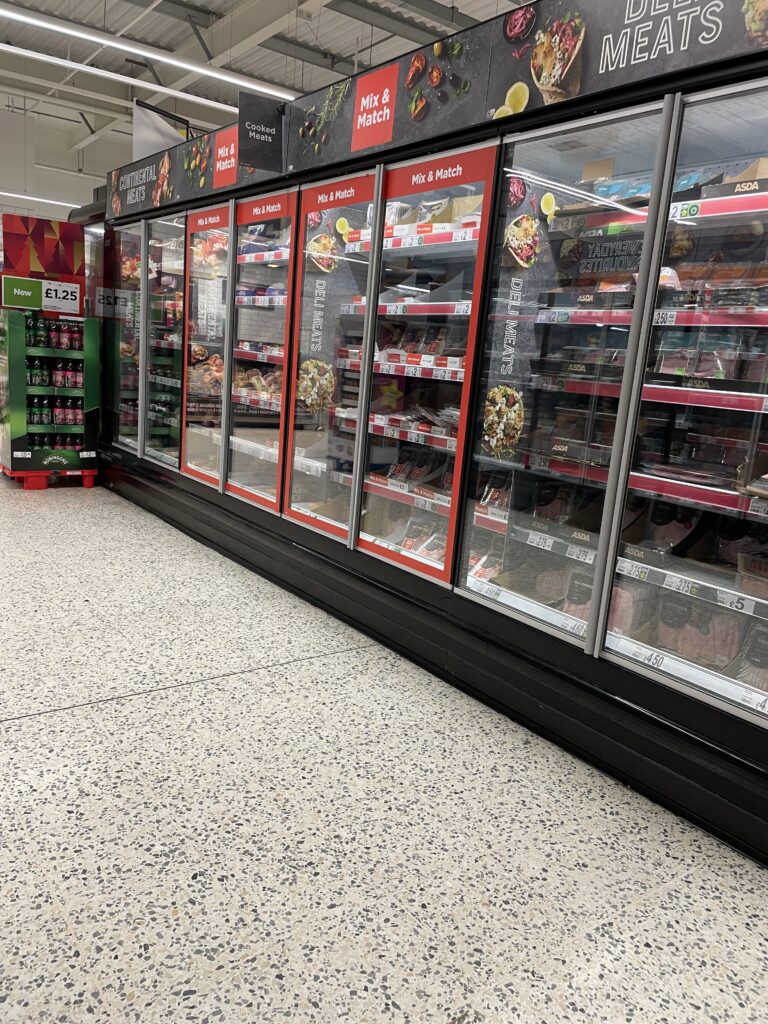
Impact on Disabled Shoppers
Disabled shoppers have expressed frustration, describing the rollout as a step backward in the fight for inclusion. Sarah Johnson, a wheelchair user and disability advocate, shared her experience:
“It’s demoralizing. I used to shop independently, but now I need help with basic things like getting a carton of milk. These designs weren’t made with people like me in mind.”
Others have voiced concerns about the message this sends. Activist Marcus Wong commented:
“These inaccessible fridges highlight a broader issue in retail: a failure to consult the disabled community during design processes. Inclusion needs to be part of the blueprint, not an afterthought.”
Supermarkets’ Response
Some supermarket chains have issued statements defending the changes. A spokesperson for one chain said:
“The new fridges are part of our commitment to sustainability and energy efficiency. We’re actively seeking feedback to ensure they work for all customers.”
However, critics argue that this response lacks urgency. While environmental considerations are crucial, they contend that accessibility shouldn’t be sacrificed for progress.

Calls for Action
Disability advocates are urging supermarkets to take immediate steps to address these barriers. Key recommendations include:
- Consulting with disabled shoppers during future design processes.
- Implementing universal design principles to ensure fridges are accessible to all customers.
The issue also highlights the importance of adhering to accessibility laws, which often mandate equal access to goods and services.
Conclusion
The introduction of inaccessible fridges by seven major supermarket chains underscores a growing tension between technological innovation and inclusivity. While strides in sustainability are important, they must not come at the cost of excluding disabled shoppers. As calls for accessibility reforms grow louder, the spotlight is on these supermarkets to demonstrate their commitment to serving all members of their communities.
News and Politics
Hurricane Helene Rescues at Unicoi County Hospital

Hurricane Helene caused chaos in Tennessee. It led to dramatic rescues at Unicoi County Hospital. More than fifty patients and caregivers found themselves trapped on the hospital’s roof. This happened as the nearby Nolichucky River overflowed. The situation quickly became critical.
Rising Waters and Desperate Measures
Floodwaters from Hurricane Helene rose rapidly. This made it impossible for ambulances to reach the hospital. In response to the flooding, patients were directed to the roof. Emergency teams rushed to help as the storm brought strong winds and heavy rain.
Emergency Services Mobilized
Access roads were completely submerged. The flooding caused by Hurricane Helene left many emergency vehicles stuck. Fortunately, a SWAT team in training was nearby. They were able to collect important medications for the patients. The destruction from Hurricane Helene led local authorities to increase rescue efforts across the area.
Challenges Faced by First Responders
Rescue attempts were difficult due to the dangerous conditions. Patrick Sheehan, Tennessee’s emergency operations director, explained that the fast-rising water made evacuation hard. After boats could not help, the team decided to evacuate everyone to the roof. This was a desperate measure in response to Hurricane Helene’s overwhelming force.

Helicopter Rescues Underway
The weather made it tough for helicopters to assist at first. However, a Virginia State Police helicopter eventually landed on the roof of the hospital. This showed the determination to help those affected by Hurricane Helene. More National Guard helicopters were on the way to ensure everyone stranded would be rescued.
Successful Evacuations and Aftermath
By 4:15 PM, all individuals trapped at Unicoi County Hospital were rescued. They were transferred to Johnson City Medical Center. The quick actions of first responders were crucial in managing the crisis caused by Hurricane Helene.
A Community in Need
Hurricane Helene left behind a trail of destruction. At least 40 lives were lost across several states. As communities begin to recover, stories of bravery will stand out. They show the resilience of people in the face of adversity brought by Hurricane Helene.
Thought and Opinion
Winter Fuel Payment Cuts for Disabled People: Crisis Looms
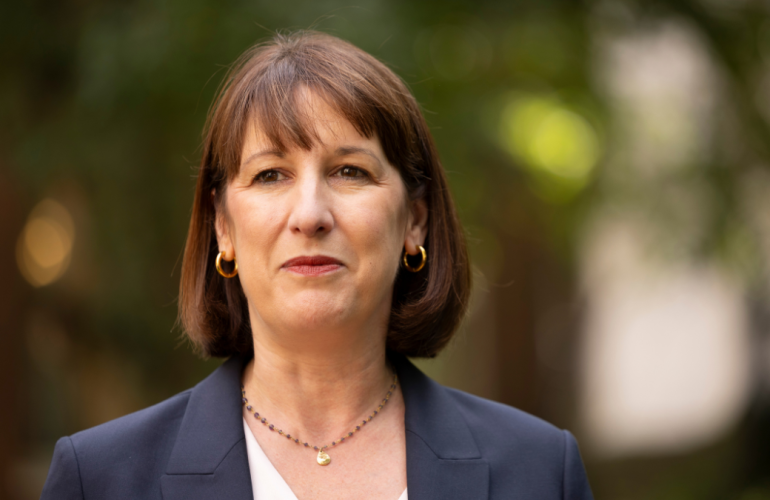
Disabled activists are deeply concerned about the government’s decision to means-test winter fuel payments. These cuts will affect 1.6 million disabled individuals, leaving many forced to decide whether to heat their homes or afford food during the cold months. This policy disproportionately impacts disabled people.
Disabled Communities Hit Hard by Means-Tested Payments
Government figures confirm that most of those affected are disabled. Yet, despite releasing two brief impact assessments, a broader review was refused. Advocacy groups, including Disability Rights UK and Inclusion London, have strongly criticized this lack of a full review. They called the government’s response “thoroughly inadequate” and demanded the cuts be reversed. They are also pushing for a comprehensive national equality impact assessment to uncover the cumulative effects of multiple benefit cuts on disabled communities and others protected by the Equality Act.
Government’s Impact Assessment Highlights Severity
Released after a freedom of information request, the government’s equality impact assessment shows that around 71% of disabled people currently receiving winter fuel payments will lose their entitlement. In a separate assessment by the Treasury, it was found that this change would negatively impact disabled people more than others, since 54% of pensioners have a disability compared to just 13% of the general population.
Ministers Criticized for High Energy Claims
Disabled People Against Cuts (DPAC) has pointed out that key figures behind this decision, including Chancellor Rachel Reeves and Work and Pensions Secretary Liz Kendall, claimed thousands of pounds in energy expenses for their second homes. Reeves claimed nearly £1,500 in 2023-24, while Kendall’s energy expenses exceeded £3,100 – far more than the annual winter fuel payment received by those over 80.
Major Policy Shift: Universal Benefit No Longer for All
Previously a universal benefit, winter fuel payments were provided each November or December to everyone over the state pension age. Individuals aged 66 to 79 received £200, and those over 80 got £300. However, Chancellor Reeves announced in July that this payment would now be limited to those on pension credit or other income-related benefits.
Pension Credit Push May Not Reach Everyone
Earlier this month, the Department for Work and Pensions launched a campaign to encourage pensioners to claim pension credit. Despite the push, an estimated 780,000 pensioners will likely remain unclaimed for pension credit, meaning they will also miss out on the winter fuel payment.
“Starve or Freeze”: Activists Warn of Severe Consequences
Bob Ellard, from DPAC’s national steering group, expressed concern that removing the payment from those barely coping financially will force them into choosing between “starving or freezing.” He also emphasized the difficulty many people face when applying for pension credit due to lengthy and complicated forms.
“This is Labour targeting people who can’t fight back,” he said. “It will result in people dying in poverty. It’s shameful.”
Concerns Over Speed of Policy Changes
The Disability Poverty Campaign Group (DPCG) echoed these concerns, stating that the change in policy happened too quickly without sufficient scrutiny. The group highlighted how people dealing with digital exclusion, loneliness, learning disabilities, or mental health challenges would struggle to apply for pension credit in time to receive winter fuel support.
They warned that the policy would lead to increased winter deaths, hospitalizations, and a higher demand for food and energy banks.



